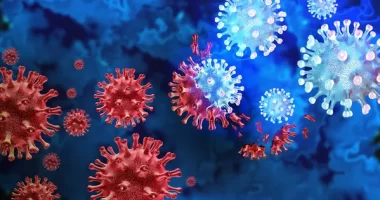The number of people living with dementia is estimated to rise to 78 million by 2030 and to 139 million by 2050.
Dementia impacts not just the person with the disease, but the whole family. Sadly, the world is failing to address dementia challenge, the World Health Organization (WHO) pointed out in its ‘Global status report on the public health response to dementia’, released on September 2.
According to WHO estimates, at present, more than 55 million people (8.1 percent of women and 5.4 percent of men over 65 years) are living with dementia worldwide. The number of people living with dementia is growing and it is estimated to rise to 78 million by 2030 and to 139 million by 2050, the report stated.
Further, the WHO projected the global cost of dementia to increase to US$ 1.7 trillion by 2030, or US$ 2.8 trillion if corrected for increases in care costs. In 2019, the cost was estimated to be US$ 1.3 trillion.
The UN health agency expressed concerns that despite the prevalence of the disease, only a quarter of countries worldwide have a national policy, strategy or plan for supporting people with dementia and their families. Even in Europe, many plans are expiring or have already expired, the report stated, highlighting the need for renewed commitment from governments.
“The world is failing people with dementia, and that hurts all of us. Four years ago, governments agreed a clear set of targets to improve dementia care. But targets alone are not enough. We need concerted action to ensure that all people with dementia are able to live with the support and dignity they deserve,” said Dr Tedros Adhanom Ghebreyesus, Director-General of the World Health Organization.
Causes of dementia and treatment
As described in the WHO report, dementia is caused by a variety of diseases and injuries that affect the brain, such as Alzheimer’s disease or stroke. Alzheimer’s disease may contribute to 60-70% of dementia cases. Dementia affects an individual’s memory and other cognitive functions, which in turn his/her ability to perform everyday tasks.
“Dementia robs millions of people of their memories, independence and dignity, but it also robs the rest of us of the people we know and love,” said Dr Tedros.
Dementia is one of the major causes of disability and dependency among older people, but it is not an inevitable consequence of ageing. Currently there is no cure for dementia. Anti-dementia medicines and disease-modifying therapies available today have limited efficacy and are primarily labelled for Alzheimer’s disease. However, several new treatments are in various stages of clinical trials.
Strengthening support is the need of the hour
The WHO report underscored the urgent need to strengthen support both in terms of care for people with dementia and those who provide that care, particularly in low- and middle-income countries.
People with dementia need primary health care, specialist care, community-based services, rehabilitation, long-term care, and palliative care. The report stated the provision of community-based services for dementia is higher in high-income countries than in low- and middle-income countries. Also, accessibility of medication for dementia, hygiene products, assistive technologies and household adjustments is higher in high-income countries, with a greater level of reimbursement, than in lower-income countries.
It is important for carers to get access to information, training and services, as well as social and financial support. While 75% of countries reporting to WHO’s Global Dementia Observatory say that they offer some level of support for carers, these are primarily high-income countries, as per the report.
How to get rid of a urine infection: 7 simple UTI home remedies
This post first appeared on The Health Site







